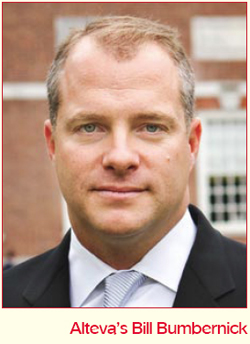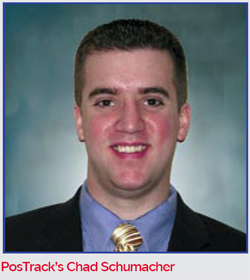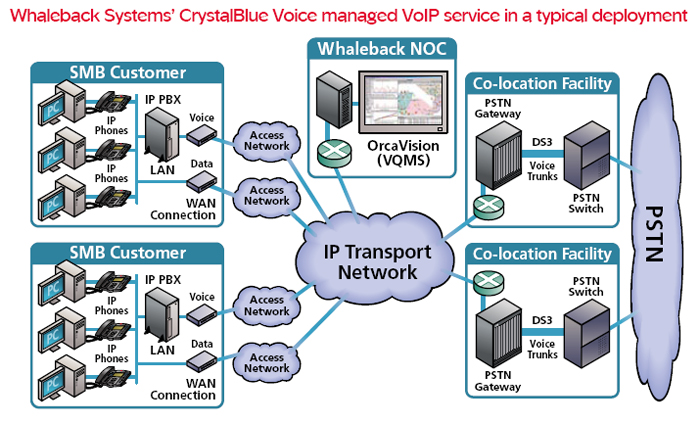|
November 2009 | Volume 12 / Number 11
Feature Story
Business VoIP’s New IT FactorBy: Paula Bernier (News - Alert)Hosted VoIP is so last season. In style now are telephony-in-the-cloud services, communications-enabled business processes and managed service providers. Don’t think basic PBX (News - Alert), darling. The new trend is all about outfitting businesses with communications solutions that offer presence, can allow today’s worker to go from wireline to wireless in a flash, and have hooks into popular business applications. “Hosted VoIP is not very descriptive. I prefer telephony from the cloud because that’s what we’re really talking about here,” says Bill Bumbernick, CEO of service provider Alteva (News - Alert). “VoIP today is just one component of many things that are coming together to create communications.” Bumbernick adds that a communications-enabled business process could have email, text and/or telephone. “And all of this stuff is to create efficiencies in business,” he says. “The cloud or the hosted part of this is what creates the rapid development – the ability to rapidly move that capability into businesses.”

Alteva, Others Join Forces to Peer, Advertise Quality ServiceBy Paula Bernier Alteva and about a dozen of its peers have banded together to ensure and advertise under a single name their high quality of service. The group is also working to create “a peering environment that expands the capabilities of HD voice and video calls,” Alteva CEO Bill Bumbernick recently told INTERNET TELEPHONY. And it sounds as if the effort also may involve leveraging the combined members’ size to get better deals for SIP peering with companies not in the group. Bumbernick declined to publicly disclose the names of the other member companies as this issue was going to press in late September, but said that an announcement about the group is planned for this fall, likely following the BroadSoft (News - Alert) Connections 2009 event Oct. 25 to 28 in Scottsdale, Ariz. He explained that many of the group’s original members got to know one another through such BroadSoft events, but adds that the group isn’t limited to BroadSoft users. “We believe that a rising tide raises all boats. So the more we help each other, [the more we] push the industry forward,” he said. “By bringing quality companies together with quality services we can debunk some of the fly-by-night operations that bring up crappy services and then damage the reputation of the industry,” he said. “It’s about bettering the industry.” As for the peering aspect of the group’s work, Bumbernick said there are companies out there that offer SIP peering services to carriers, but when you get into peering for profit, you create a relationship that has a lot of restrictions around it. But when peers have a common goal, he added, “it’s very open.” IT David Zwicker, vice president of marketing at Whaleback Systems (News - Alert), says his company considers itself a managed service provider and fits somewhere between the two options of buying a PBX from Ayava, Cisco or ShoreTel (News - Alert) and using IP Centrex.
“We don’t want any part of that association,” he adds. Rather, Whaleback provides QoS through intelligence in the PBX, intelligence in the network operations center, and control over the gateway where the IP-PSTN handoff takes place. Additionally, he says, Whaleback provides a dedicated pipe for voice traffic. As part of its service, Whaleback handles installation; cuts a deal for access connectivity, which could be for a T1, DSL, cable modem service or whatever is the best option in the customer’s area; provisions the bandwidth needed for the customer’s applications; and maps how those calls will move over the network so it can control the call paths, says Zwicker. Whaleback, which supports CrystalBlue Voice using its own server-based PBX, aims its collection of products and services at customers with five to 500 employees, he says. But Whaleback considers businesses in the 15 to 99 employee space as its sweet spot because they tend to be too big for key systems and too small for traditional enterprise-class PBXs. Customers today are looking for alternatives to expensive PBX purchases because of the economy and because they just don’t want to put a lot of capital into these systems, says Zwicker. Hosted VoIP is an option, but a problematic one, he says, because it risks service quality and can limit feature functionality. But a managed service in which Whaleback provides the PBX, the management of it and the connectivity packaged in “a nice, predicable, flat-rate” setup is a more attractive offer, he says. IT
FMC by the Book
PosTrack Brings Converged Services to Higher EducationBy Paula Bernier PosTrack is an interesting study in hosted telephony. The company’s current telephone effort evolved from its point-of-sale division, which sells solutions to companies in the food service sector. Sodexo, the owner of Marriott, is its biggest customer. In addition to hospitality, Sodexo caters to cafeterias at institutions of higher education. While serving up its solutions on college campuses, PosTrack got an education on the telecommunications habits of students. It became clear, says Chad Schumacher, director of marketing at PosTrack, that students were shifting to mobile and away from wireline telecommunications services. So PosTrack saw an opportunity to deliver a hosted telephony system with fix/mobile communications capability, he says. Today PosTrak offers a solution for which each line of service can be assigned up to five devices. That can include an IP on a user’s desktop or within a home, an ATA or a mobile handset, says Schumacher. Within the PosTrack network is a firewall management gateway that allows a SIP proxy server to manage endpoints for things like moves, adds and changes. The solution also ensures high-quality voice, and allows mobile devices to move seamlessly between wireless and wireline networks. But while PosTrack’s telecom division attends to the higher education vertical, the company is focused on the large enterprise market, including large franchises and big hospitals. PosTrack uses the Siemens (News - Alert) OpenScape Voice application as its centralized software-based VoIP solution, forming the basis of three services offered to corporate enterprises. PosTrack Trunking provides SIP trunking directly to customers’ legacy PBX systems. The PosTrack Desktop service extends SIP service to the desktop phone, delivering the enhanced features and unified messaging services enabled by the OpenScape Voice application, all at a fixed cost. PosTrack Mobile leverages the HiPath MobileConnect solution to provide FMC. PosTrack recently began rolling out the FMC service to 6,000 students and faculty at a large university, equipping the users with dual-mode phones. “We’re currently certified for FMC on the Nokia Symbian operating system,” says Schumacher. PosTrack expects to certify for FMC on the iPhone (News - Alert) short order. Certifying on the BlackBerry is its next assignment. IT Today @ TMC
Headlines
Upcoming Events
MSPWorld
The World's Premier Managed Services and Cloud Computing Event Click for Dates and Locations Corporate News
|
|





 Hosted VoIP sounds like it is purely Internet-based, meaning “best effort,” Zwicker says, and Whaleback is certainly not that.
Hosted VoIP sounds like it is purely Internet-based, meaning “best effort,” Zwicker says, and Whaleback is certainly not that.

